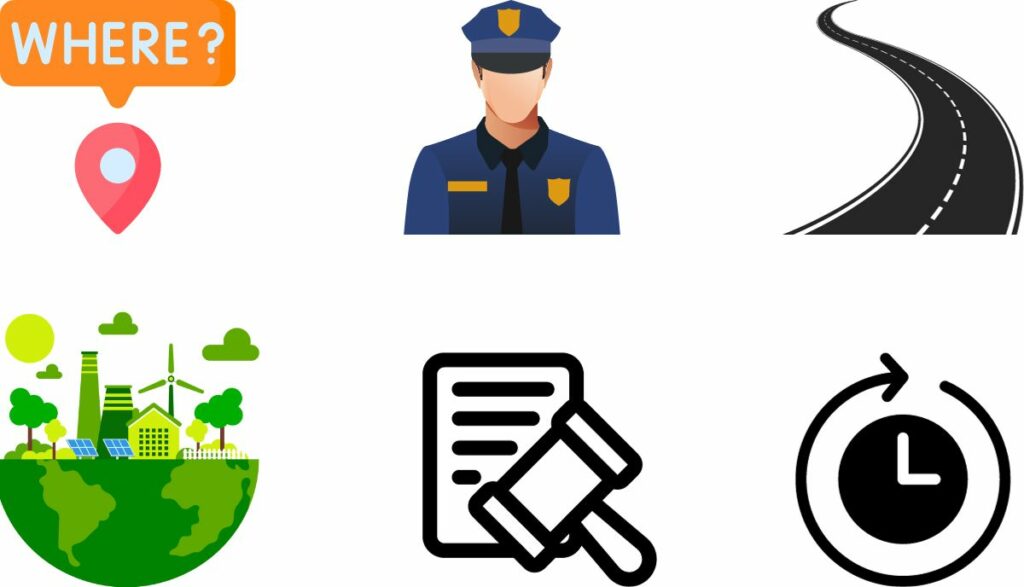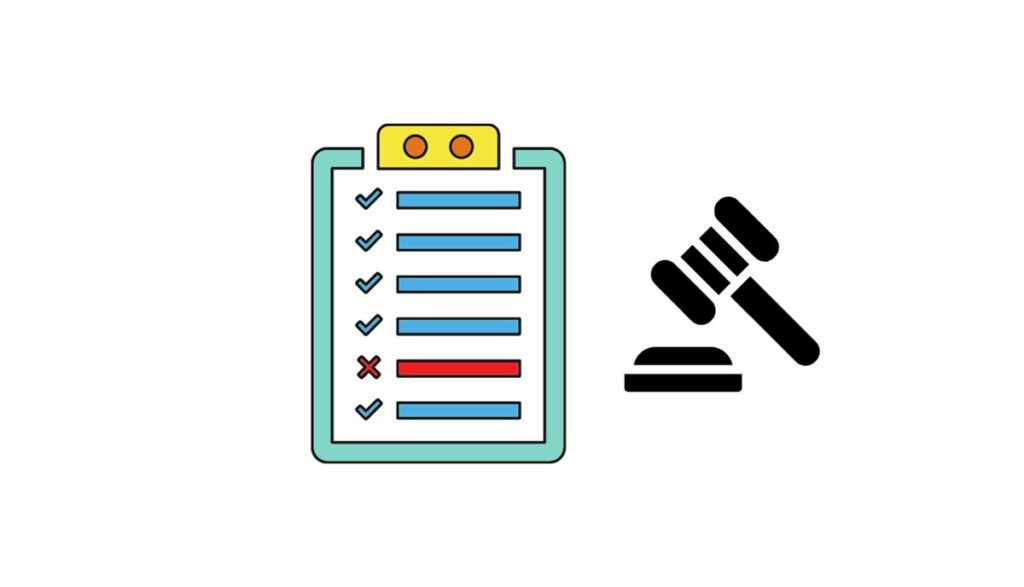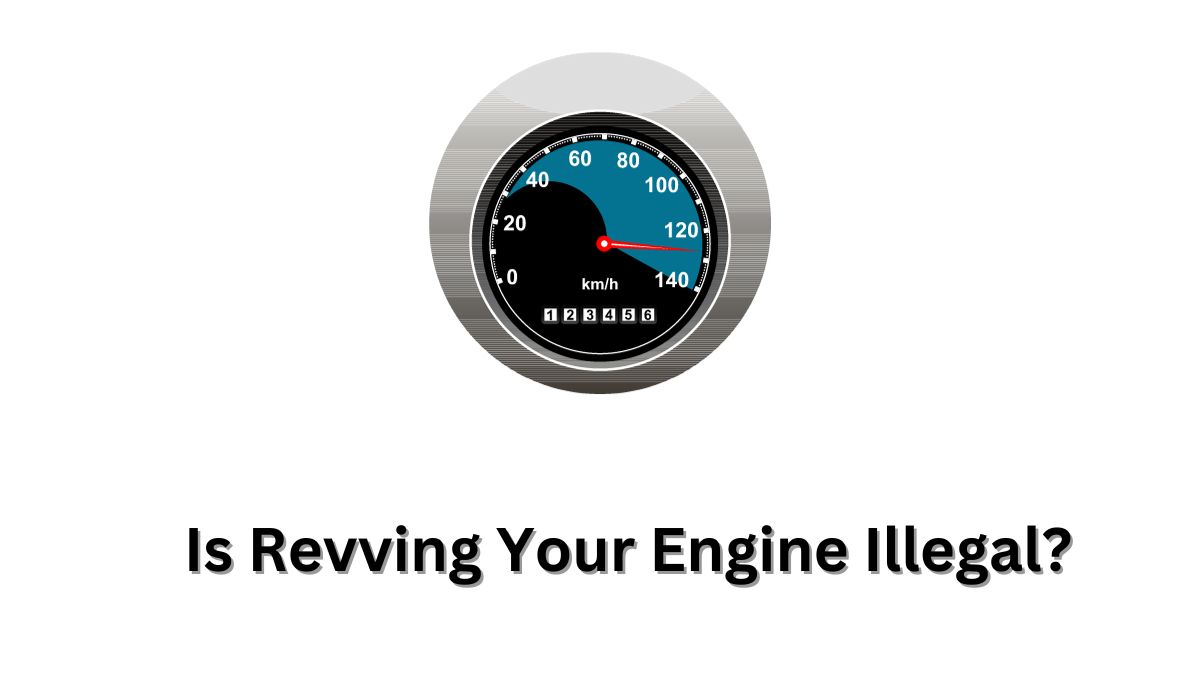Revving is tricky. Some people do it for fun. For others, revving is a troubleshooting technique. It allows them to diagnose faulty vehicles. But is the practice legal?
| STATE | IS REVVING ILLEGAL |
| CALIFORNIA | YES |
| Florida | YES |
| Texas | YES |
| IOWA | YES |
| ILLINOIS | YES |
| VIRGINIA | YES |
Is Revving Illegal In Canada?
Revving is not illegal in Canada. Or, at the very least, the law doesn’t directly mention the practice. However, like most civilized nations, Canada’s regulations prohibit noise pollution. Driving.ca mentions bylaws in Ottawa that prohibit the use of construction vehicles and equipment between 10 in the evening and 7 in the morning.
They want to protect citizens from the noise. Therefore, local authorities may fine you for honking loudly, revving the engine, and causing the tires to squeal at the wrong time.
Is Revving Illegal In The UK?
Yes, revving is illegal in the UK. The local authorities are more likely to apply laws prohibiting noise pollution and disruptive behavior as opposed to codes that directly oppose revving. The Drive has cited an incident from Northampton in 2015 in which police used laws on anti-social behavior to tow a Ferrari F12 Berlinetta because the owner drove in an annoying manner that caused distress and alarm.
Things You Need To Know Before Revving Your Engine

1). Where Do You Live?
This is the most important consideration. Your country will determine the response you get from law enforcement. Stokeon Trent Live has an article highlighting signs in the UK warning drivers against revving their engines.
Local authorities may use Section 59 of the Police Reform Act 2002 to penalize them. The Act prohibits anti-social driving. Revving counts as anti-social driving because it makes noise for passersby.
Some of you are celebrating because your local code doesn’t mention engine revving. However, before you rejoice, remember that many governments can still punish you using regulations that don’t mention revving.
Laws that prohibit annoying and disruptive acts are intentionally vague. This allows law enforcement to apply them to any action that creates a disturbance.
2). How Many Cops Do You See?
How widely do traffic officers deploy in your area? Do you see them on every street, or are they a rare sight? Why does that matter? Even if the practice is legal in your state, revving may attract the attention of a traffic cop.
And once they stop you, they may identify other significant violations. Avoid revving if you don’t want the unnecessary attention.
3). What About The Area?
Are you revving in the middle of a highway? No one will care. What about streets near government buildings and schools? Law enforcement will use noise pollution laws to punish you. The same goes for residential areas.
Laypeople have more power than you think. Lawteacher.net has cited a case (Rylands V Fletcher) in which balls from a cricket ground kept falling into a claimant’s property. The claimant sued the cricket ground and won because the cricket balls were a nuisance.
If a layperson can sue a cricket ground, they can sue you for revving your car because the noise is a nuisance. The Texas State Library describes ‘Nuisance’ as anything that causes inconvenience or annoyance. That clearly covers revving. Legal Match has listed the various actions you can take against a noisy neighbor.
4). What About The Environment?
Besides the nuisance component, people tend to ignore the environmental aspect of revving. A revving engine works harder and burns more fuel. This, in turn, increases the toxic elements it ejects into the environment.
If your country has strict pollution laws, law enforcement may penalize you for revving the engine, especially if the traffic officer can’t find a catalytic converter after stopping you and performing an inspection. Again, don’t attract attention from traffic officers unless absolutely necessary.
5). Do Private Rules And Regulations Matter?
Yes, they do. Private establishments can make and enforce any rule they want (within reason). For instance, if a hotel prohibits you from revving in their parking lot, they may have your car towed if you break their rules.
Pay attention to the signs in your area. They will let you know what you can and can’t do. Private establishments are unlikely to punish you unless they warn you about revving beforehand. But you can’t claim ignorance if they post the warning signs and you fail to notice them.
6). The Duration Makes A Difference
People rev their vehicles all the time. But most do so briefly, either in the morning while starting the car or as they drive on the road. The police don’t care. The noise doesn’t last long enough for them to notice. Problems arise when you rev the engine for an extended period.
What Are The Legal Consequences Of Revving Your Car’s Engine In Public?

Some drivers (who want to rev their engines) blame the government for cracking down on revving. However, The Independent published the results of an RAC study that polled nearly 1,500 motorists and found that 58 percent of them supported the use of noise cameras.
Noise cameras use a microphone to ensure a passing vehicle’s noise levels stay within the legal limit (74 decibels). The cameras will record number plates, allowing local police to track errant drivers.
You also have a CBC News article from Canada highlighting noise bylaws (cracking down on unnecessary vehicular noise) that only came about when members of the DVP Noise Action Group complained about the noise from racing motorcycles.
In other words, governments are incentivized to penalize drivers with noisy vehicles. Expect a ticket and a fine. This 2023 Fortune article has highlighted 71 drivers who received tickets because of their loud cars. Their fines ranged from $800 – 2,625. The exact amounts may vary depending on where you live.
Private establishments may banish you from their premises if you keep revving your vehicle despite repeated warnings.
How Can I Avoid Legal Issues Related To Revving?

Revving is complicated because many laws don’t prohibit the practice outright. And yet, many regulations allow local authorities to indirectly punish you for revving. With that in mind, how can you avoid the legal ramifications of revving? The following may help you:
- Make sure your vehicle stays within the legal noise limit
Did you know there’s a limit to how much noise a car can generate? The experts at California Car Levels expect vehicles to keep noise levels below 95 decibels. Before concerning yourself with revving laws, make sure your vehicle stays within the legal noise limit.
This matters to consumers who routinely modify their vehicles. Stay away from alterations that dramatically increase the engine’s noise levels. If your car is already too loud, what do you expect to happen when you rev the engine?
- Noise Pollution Levels
When do noise pollution rules kick in? What is the threshold? Rather than wondering whether revving is legal in your country, take a moment to determine whether your vehicle’s revving engine makes enough noise to cross the line stated in the local code.
Some vehicles are relatively quiet, even when you rev them. Then again, many noise pollution laws don’t set strict guidelines. They expect police officers to make these decisions. Therefore, a traffic cop may fine you even though your revving engine is quieter than most.
Either way, it behooves you to stay abreast of the law. Find out what it says about your driving behavior.
- You’re less likely to attract fines by revving your engine in your garage or at a repair shop
The neighbors may still sue you. However, you have some leeway. Don’t rev near government buildings, schools, and hospitals.
You should also steer clear of residential settings. Even if you live in the neighborhood, move the car to your property before revving the engine.
- Don’t rev for longer than is necessary
Revving the car for a few seconds in the morning to warm up the engine is okay. The neighbors will complain if the revving continues for several minutes.

